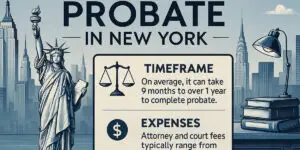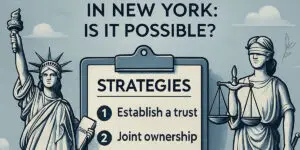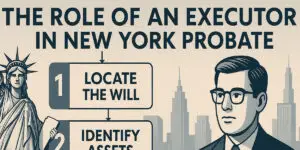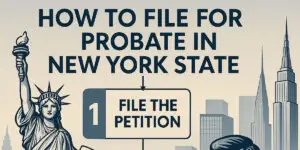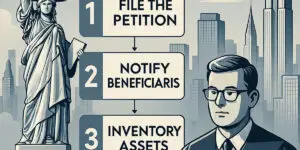Who Owns the Property in a Revocable Trust in New York?
In estate planning, a revocable trust is a commonly used legal instrument that allows individuals to transfer ownership of their assets into a trust during their lifetime, with the flexibility to modify or revoke the trust as needed. Understanding the ownership of property in a revocable trust is crucial for individuals seeking to protect and manage their assets in New York State.
Role of the Trust Creator
The trust creator, also known as the grantor or settlor, is the individual who establishes the revocable trust and transfers their assets into it. As the trust creator, they maintain ownership and control of the trust assets during their lifetime. They have the authority to make changes to the trust terms, including adding or removing assets, changing beneficiaries, or revoking the trust entirely.
Role of the Trustee
Upon the creation of the revocable trust, the trust creator typically designates themselves as the initial trustee, retaining full control over the trust assets. In the event of the trust creator’s incapacity or death, a successor trustee steps in to manage the trust assets according to the terms outlined in the trust document.
The trustee is responsible for overseeing the administration of the trust, including investing trust funds, paying bills, managing real estate properties, and distributing assets to beneficiaries as specified in the trust document. While the trustee holds legal title to the trust assets, they do so as a fiduciary duty to act in the best interests of the beneficiaries.
Role of the Beneficiaries
The beneficiaries of a revocable trust are the individuals or entities designated to receive trust assets upon the trust creator’s death. During the trust creator’s lifetime, they may also serve as beneficiaries, benefiting from any income or distributions generated by the trust assets.
While the beneficiaries have beneficial interests in the trust assets, they do not have legal ownership or control over the assets until they are distributed to them by the trustee. The trust document outlines the rights and entitlements of the beneficiaries, including the timing and manner of distributions.
Ownership of Property in a Revocable Trust
Under New York State law, the ownership of property in a revocable trust is unique in that the trust assets are considered owned by the trust itself, rather than the individual trust creator or beneficiaries. During the trust creator’s lifetime, they effectively retain ownership and control of the trust assets as both the trustee and the beneficiary.
Upon the trust creator’s death, the trust becomes irrevocable, and the successor trustee assumes full responsibility for managing and distributing the trust assets to the designated beneficiaries. At this point, the trust assets are no longer considered part of the trust creator’s estate for probate purposes, providing privacy and avoiding the delays and expenses associated with the probate process.
Conclusion
Understanding the ownership of property in a revocable trust is essential for effective estate planning in New York. By establishing a revocable trust, individuals can maintain control over their assets during their lifetime while ensuring seamless transfer and management of those assets upon their death.
At Morgan Legal Group, our experienced estate planning attorneys assist clients in creating customized revocable trusts tailored to their unique needs and goals. Contact us today to schedule a consultation and protect your assets for future generations.




